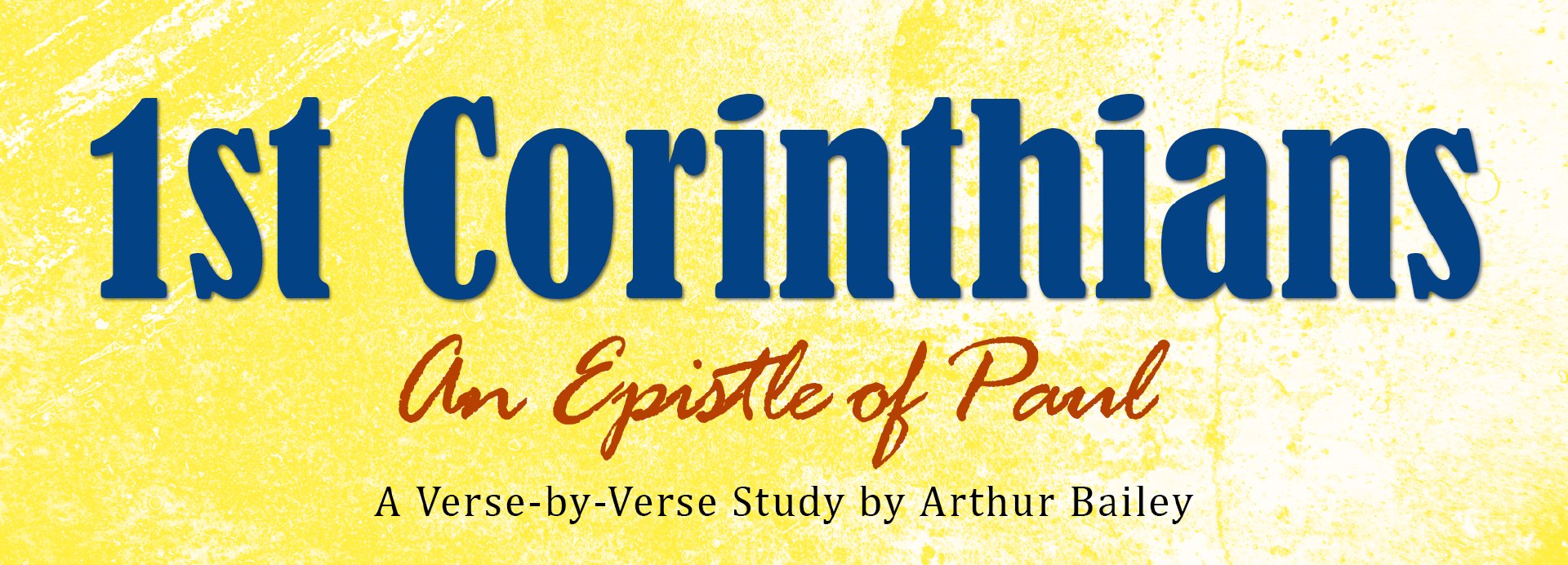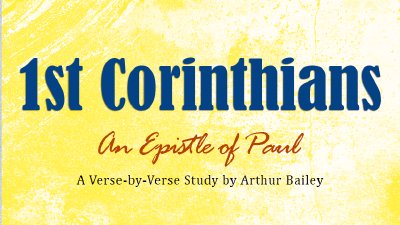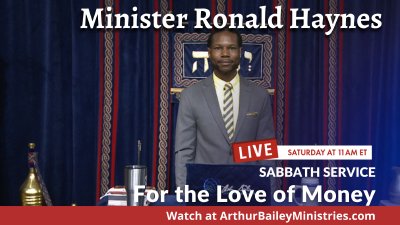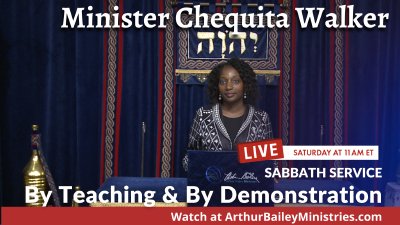


1st Corinthians
A Verse-by-Verse Study by Arthur Bailey
Food and Idols
April 27, 2024 • Arthur Bailey • 1 Corinthians 8
The opening phrases of YeHoVaH’s communication to the newly formed Nation of Israel, via the first six verses of the Ten Commandments, dealt with the issues of other gods, graven images, and idol worship. Millenniums later, Paul is asked about the issue of eating meat sacrificed to idols and how the newly formed Corinthian community in Yeshua should respond to prevailing idolatry in the Greek city of Corinth.
Marriage: A Life Sentence
April 20, 2024 • Arthur Bailey • 1 Corinthians 7
The Corinthian Believers had written to Paul about a series of issues pertaining to marriage and other subject matters they needed instructions on how to handle amongst the Saints within the Assembly. Paul goes into some detail in his response to them from both his own position on the subject of marriage and what is commanded by Yeshua based on what is commanded in the Law. Paul concludes that marriage is a life sentence.
Man's law vs God’s Law
April 13, 2024 • Arthur Bailey • 1 Corinthians 6
The vast majority of those who profess faith in God today and follow Paul, approach YeHoVaH’s Word from an under the Law or under grace mindset. Those who reject God’s Law as a form of bondage declare that those who observe the Law are under a curse. Furthermore, they willingly submit to man’s law while unwittingly admitting that they put more faith in the laws of man than the Law of God. Is that what Paul teaches?
For the Love of Money by Minister Ronald Haynes
April 6, 2024 • Ronald Haynes
Money, a man-made tool which YeHoVaH allowed to be created, can be used for blessings and/or destruction, depending on who is in possession of it. Man is obsessed with having as much of this tool as possible. There are men of the world that possess it and men of the Kingdom that possess it as well. When money is sought more than the desire to display obedience to the Laws of YeHoVaH; it becomes the root of all evil.
Purge the Old Leaven
March 30, 2024 • Arthur Bailey • 1 Corinthians 5
The Saints in the assembly at Corinth were the products of a very immoral city with a number of religious pagan influences including an infamous temple dedicated to Aphrodite, the goddess of love, whose worshipers practiced religious prostitution. Learning the new way of life for these Believers meant they had to purge some old ways of thinking and behaving, especially in the sexual category.
By Teaching & By Demonstration by Minister Chequita Walker
March 23, 2024 • Chequita Walker • Mark 1:1–28
According to Google, there are approximately 4,200 religions around the world. And if so, then imagine how many false gods there are that people are worshipping. Some religions proclaim their allegiance to one or more deities! When taking the Gospel of the Kingdom to the nations, what is it that separates our Message from all of the other religious messages? What is it going to take for the lies to be exposed and for the Truth to be on full display?
Talkers and Doers
March 16, 2024 • Arthur Bailey • 1 Corinthians 4
Knowing the Word and applying the Word of YeHoVaH are not the same. Hearing the Word and doing the Word are two different things. Knowledge of the Word provides intellectual stimulus and Scriptural material for religious conversation but does not provide the power the Word produces to set men free. The Corinthian believers are challenged in this Chapter by Paul to not be puffed up with their knowledge that manifests only in talk.
You Are Holy
March 9, 2024 • Arthur Bailey • 1 Corinthians 3
The Corinthian Believers had so many good things going for them that also presented a multitude of challenges for them. This resulted in much confusion and disorder. Paul’s letter to the Corinthians addressed the various issues they were facing. Simultaneously, Paul was redirecting the Believers' focus on who they were as a holy people of a Holy God and the purpose of YeHoVaH/God in them as Believers and in the midst of them as an Assembly.
The Mind of Messiah
March 2, 2024 • Arthur Bailey • 1 Corinthians 2
Paul, an Apostle of Messiah Yeshua, saw firsthand the enormous pride the Greeks of Corinth had in their philosophy and wisdom during his one and a half year stay in Corinth. Paul’s observations of the Greeks devotions to deities and gods gave him a unique opportunity and perspective to present Messiah Yeshua to them in a way that would peak their interest in a deity that had far superior wisdom than they and who made available His wisdom to all who put their faith and trust in Him.
The Foolishness of God
February 24, 2024 • Arthur Bailey • 1 Corinthians 1:18–31
The Greeks of Corinth took great pride in their philosophy and wisdom as did Greeks throughout Greece. The Greek culture and mindset has influenced people groups and cultures around the world unlike any other culture. Paul’s observations of the Greeks and their devotions to deities and gods became obvious very quickly as he pondered on how to present the message of Messiah, a message that would be viewed as foolishness to the Greeks.
A Divided Church
February 17, 2024 • Arthur Bailey • 1 Corinthians 1:1–17
Divisions in the Corinthian assembly, established by the Apostle Paul, were major points of contention amongst the Brethren. The causes of the divisions varied; and unifying a divided assembly required addressing the issues head-on in order for the Body of Messiah at Corinth to move forward as one. Paul's opening remarks are strategically designed to set the record straight and initiate the tedious task of unification.
1st Corinthians – The Introduction
February 10, 2024 • Arthur Bailey
1st Corinthians is an often quoted letter on a variety of doctrinal issues in assemblies, churches and congregations that teach from the Bible. The Corinthian assembly was a very gifted and talented congregation of individuals who were excited about their new found faith in Yeshua. The ordained Corinthian leadership that had been set in place, being new to the faith, had many questions relating to conduct, order, and other areas of concern. They sought instructions from its founder. In the Introduction, we will answer the common questions of: who wrote 1st Corinthians, to whom it was written, when and why?




